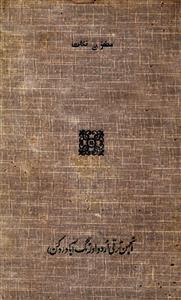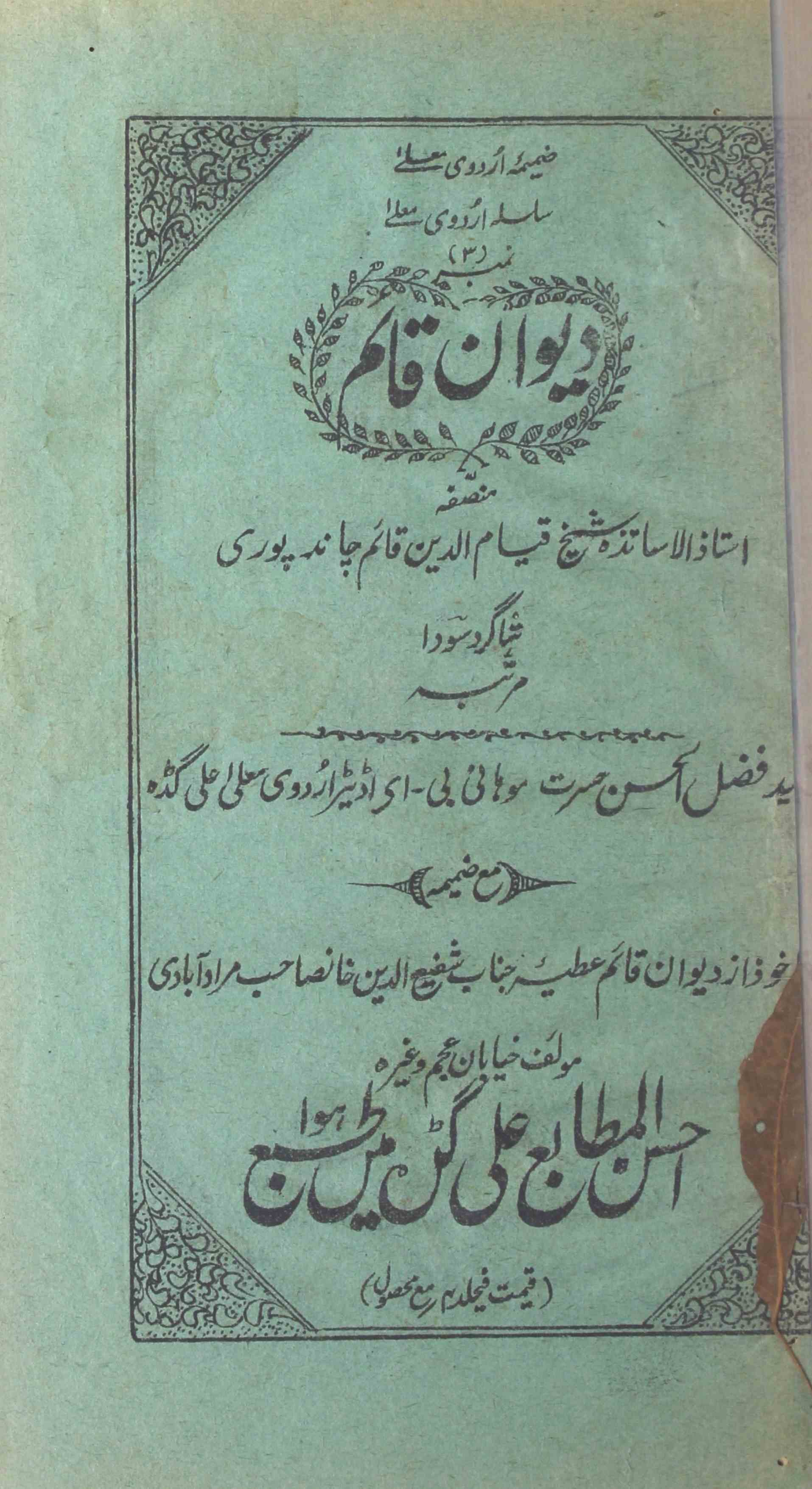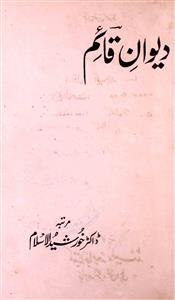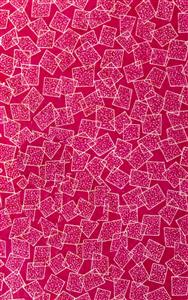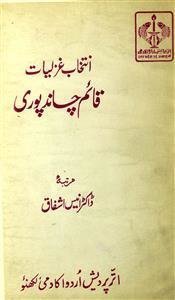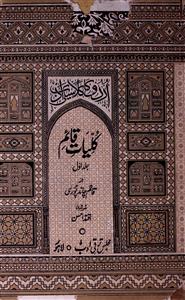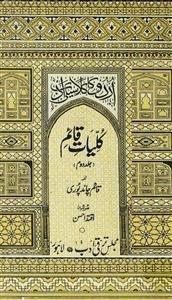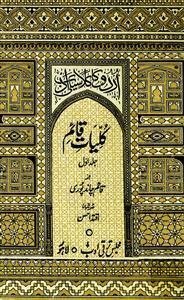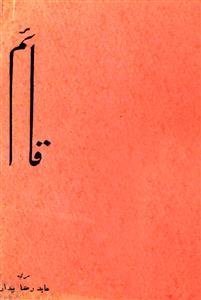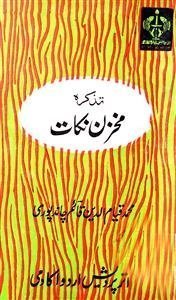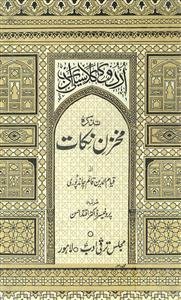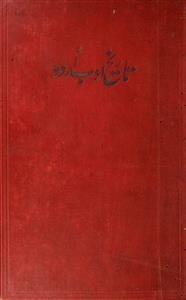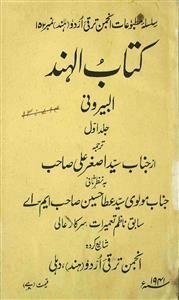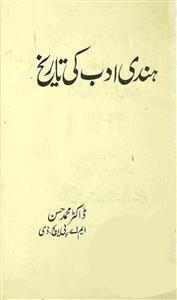 For any query/comment related to this ebook, please contact us at haidar.ali@rekhta.org
For any query/comment related to this ebook, please contact us at haidar.ali@rekhta.org
About The Book
قائم چاند پوری کے تذکرہ "مخزن نکات" کو اردو شعرا کے قدیم تذکروں میں شمار کیا جا تا ہے۔ "نکات الشعرا" اور "تذکرۂ ریختہ گویاں" کے بعد یہ تیسرا تذکرہ ہے۔ اسپرینگر نے قدیم ہندوستانی ادب کی تاریخ لکھنے کے سلسلے میں "مخزنِ نکات" کو سب سے اہم مآخذ قرار دیا ہے۔ اس تذکرہ میں ہر دور کے شعراء کا حال الگ الگ لکھا ہے جو مستند سمجھا جاتا ہے۔ نیز قائم نے اردو شاعری کے ادوار یا طبقات متعین کر کے تذکرے اور تاریخِ ادب میں باہم ربط قائم کیا۔ یہی وجہ ہے کہ اردو ادب کی تاریخ مرتب کرنے میں جتنی راہ نمائی اس تذکرہ سے مل سکتی ہے، کسی دوسرے معاصر تذکرے سے نہیں ملتی۔ زیر نظر تذکرہ کو مولوی عبد الحق نے مرتب کیا ہے، جس کے مقدمہ میں مختصرا مصنف کے حالات کے علاوہ تذکرہ کی خصوصیت، مختلف نسخوں، اور ماخذوں پر گفتگو کی گئی ہے۔
About The Author
He is one of the doyens of Urdu literature. His real name was Shiekh Qayam-ud-diin alias Mohammad Qayam. Qayam was his pen name. His native town was Chandpur of district Bijnore. Those were the heydays of Urdu poetry and in that era, Delhi could boast of literary pioneers like Meer Taqi Meer, Khwaja Meer Dird and Sauda to its credit. Qayam was quite short tempered so he remained at logger heads with a lot of people. He became the disciple of Khwaja Meer Dird, but his relations could not go on for long. Later on, he presented himself in the service of Mirza. Though it was not an easy task but Mirza trained him well. When Delhi was experiencing trying times during the period of Aalam Geer Saani, he got associated with Nawab Yaar Muhammad Khan of Taanda. Here, he met another towering literary figure of that period, Mushafi. He soon befriended him. He helped Mushafi get employed there. Nevertheless, this good time lasted only for three years. He reached Rampur and stayed there for a long time. Since, his salary was very low, he moved on to Lucknow and got appointed as the Chief Administrator of his region by Raja Ticket Roy, in an effort to establish him again in his motherland. After reaching Rampur, he passed away. Jurrat has published the date of his death, which is known as tareekh in Urdu. Every critic of that period praises the poetry of Qayam. Kareemuddiin writes that he is a unique poet, a master orator and one who has poetry flowing through his blood. Many good poets of this era were not even half as good as him. There are a few, who claim that he is even better than Sauda. And those who deny it, do so only to flatter Sauda. Contrary to this view, Shefta thinks that comparing him with Sauda is not right but, he showers enough praises on his qat’aat and rubaaiyat, though according to his view those are a mere jumbling of words. According to Hasrat, his specialty lies in the compactness of his style, undoubtedly, he is a good poet and worth of reading, but it would be unjust to compare him with Meer and Sauda. He has explored every trait of literature and has composed many rubaai, qat’aat, ghazaliyaat, masnawi, qaseeadas, tarkeebband and tawareekh. He used to compose hajv, a jilted way of satire too and in that field can be compared with his guide Sauda.
 For any query/comment related to this ebook, please contact us at haidar.ali@rekhta.org
For any query/comment related to this ebook, please contact us at haidar.ali@rekhta.org
